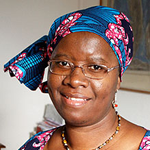Human Rights of Women
Yesterday was the deadline for nominations for Executive Director of UN Women. The candidates will succeed the organization’s first head, Michele Bachelet, who resigned suddenly in March to return home and stand for election to Chile’s presidency. At least six candidates are rumored to be under consideration.
Rebeca Grynspan is considered a strong contender and possibly the front runner for the post. Grynspan is the former Vice President of Costa Rica and currently serves as an Associate Administrator at UNDP. An elections official at the Costa Rican permanent mission in New York stated to Global Memo that the Latin American and Caribbean region is eager to keep the post.
Lakshmi Puri is the current Acting Executive Director, stepping in shortly after Bachelet’s resignation. A source with a leading U.S. human rights group however suggests that few women’s rights groups see her as preferred successor to Bachelet. In December, her husband, Ambassador Hardeep Singh Puri, wrapped up his presence on the UN Security Council as India’s 2-year term on the body concluded. What impact his influence will have his wife’s candidacy and the selection is of particular interest.
Radhika Coomaraswamy, the former special advisor to the Secretary General on Children and Armed Conflict, is looked upon more favorably by women’s groups, according to the same source. She had been under consideration in 2010. From Sri Lanka, she is currently a visiting scholar at New York University’s Center for Constitutional Transitions.
Tarja Halonen, former President of Finland, is also rumored to be a nominee. Like Coomaraswamy, she had also been nominated in 2010, but was not seriously considered as the Secretary General was reportedly seeking a woman from the Global South to head up the new agency initially.
Kim Campbell, the former and first female Prime Minister of Canada, confirmed she has been nominated by her government in mid-April after its leaked in Azerbaijani media reports. Ms. Campbell was the former board chair at the International Women’s Forum and the Council of Women World Leaders. She now sits on the board of the International Crisis Group.
Nyaradzayi Gumbonzvanda is currently the General Secretary of the World YWCA. She is a trained human rights lawyer from Zimbabwe with extensive experience in conflict resolution and mediation, including 20 years experience on issues of women and children’s human rights, with a special focus on crisis countries.
If the process unfolds as it did in 2010, the Secretary General’s senior appointment team will vet the nominees and present to Mr. Ban a short list of three candidates. Following interviews with each, Ban will make the final decision on whom he will appoint to take over the post. The 2010 vetting process and selection was wrapped up in 7 weeks, in part to have the first Executive Director in place before the General Assembly convened. Last month, John Hendra, Associate Executive Director at UN Women, noted that a new search could take up to three months.
But if this year’s process is less competitive, i.e. fewer than 25+ candidates as in 2010, we may see a nominee before the body’s Executive Board meets at the end of June or shortly thereafter.
Unlike in 2010, women’s groups have been very unengaged in regards to the transparency of the Secretary General’s selection or qualifications of any of the candidates. Women Thrive is not active on the race this year, nor is the GEAR campaign, which spearheaded efforts in ensuring the 2010 candidates were highly qualified for the post.
The only NGO known to be engaging in any meaningful way this year is the Association for Women in Development (AWID), which plans to interview each candidate. William Pace, Executive Director of WFM/IGP, stated that “it would be best if the SGs process were more transparent.”
As expected, the Secretary General’s office is officially tight-lipped on the candidates, refusing even to confirm the final number of nominees received.






